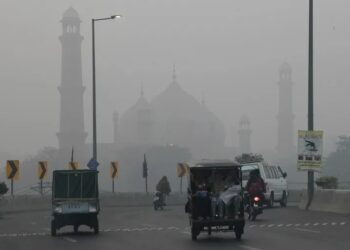Written by: Ghulam Mohiuddin Dar
Overpopulation in Pakistan is a critical issue that has far-reaching impacts on the country’s economy. The rapid increase in the population has led to severe strain on limited resources, infrastructure, and services in the country. Pakistan is currently the fifth-most populous country in the world, with a population exceeding 220 million people and a growth rate of around 2% per year.One of the major impacts of overpopulation on the economy of Pakistan is the strain it puts on the healthcare system. With a large population to cater to, the healthcare system is overburdened and struggles to provide adequate care to all citizens. This results in poor health outcomes, increased infant mortality rates, and higher healthcare costs for the government.Overpopulation also aggravates poverty in Pakistan. The rapidly growing population leads to high competition for limited job opportunities, resulting in high levels of unemployment and underemployment. This, in turn, leads to a cycle of poverty, with many families struggling to meet their basic needs. Moreover, the sheer number of people in the population puts a strain on social services such as education and welfare, further exacerbating poverty levels.Overpopulation has always been a central point of concern for Pakistan. Today, in the 21st century, Pakistan and its neighboring countries are the main states under risk of the fallouts of overpopulation resulting in climate change, food scarcity, and insufficient energy and resources.The environment is another area where overpopulation in Pakistan has a significant impact. The increased demand for resources, such as water and energy, puts immense pressure on the environment, leading to pollution, deforestation, and loss of biodiversity. These environmental issues, in turn, have negative implications for the economy, as they can lead to increased healthcare costs, reduced agricultural productivity, and damage to tourism industries.Another significant impact of overpopulation on the economy of Pakistan is the strain it puts on infrastructure. With a rapidly growing population, there is a need for more housing, schools, roads, and other infrastructure to cater to the needs of the people. However, the government struggles to keep up with the demand, leading to overcrowding, traffic congestion, and inadequate public services.overpopulation in Pakistan has wide-ranging impacts on the all platforms including economy, affecting healthcare, poverty levels, the environment, and infrastructure. Addressing this issue requires a multi-faceted approach that includes implementing effective family planning programs, improving access to education and healthcare, and promoting sustainable development practices. Only through concerted efforts and policies can Pakistan effectively manage its growing population and ensure a sustainable and prosperous future for its citizens.Pakistan, a country located in South Asiaranks as the fifth-most populous country in the world. The rapid population growth in Pakistan has had a profound impact on its economy, presenting both opportunities and challenges for the nation.One of the key impacts of overpopulation on the economy of Pakistan is the stress it puts on the country’s limited resources. With a growing population, there is increased pressure on essential resources such as water, agricultural land, and energy. This strain has led to issues such as water shortages, food insecurity, and energy deficits, all of which have far-reaching consequences for the economy.The high population density in urban areas has also led to challenges such as inadequate housing, traffic congestion, and environmental pollution. These issues not only have a negative impact on the quality of life for Pakistanis but also pose economic challenges in terms of increased infrastructure costs, healthcare expenditures, and lost productivity due to traffic congestion and pollution-related health problems.Furthermore, the growing labor force is outpacing job creation, leading to a situation where many Pakistanis struggle to find meaningful employment. This, in turn, hinders economic growth and stability, as a large segment of the population is unable to fully contribute to the economy.Pakistan must address the challenges posed by overpopulation, such as inadequate education and healthcare, lack of infrastructure, and environmental degradation.In conclusion, overpopulation has significant impacts on the economy of Pakistan, ranging from resource constraints and environmental degradation. Addressing these challenges requires a multi-faceted approach that includes implementing effective population control measures, investing in education and healthcare, and promoting sustainable economic development practices. Only through intensive efforts to manage population growth and by overcoming the economic challenges posed by overpopulation can pave the way for a more prosperous future.

























